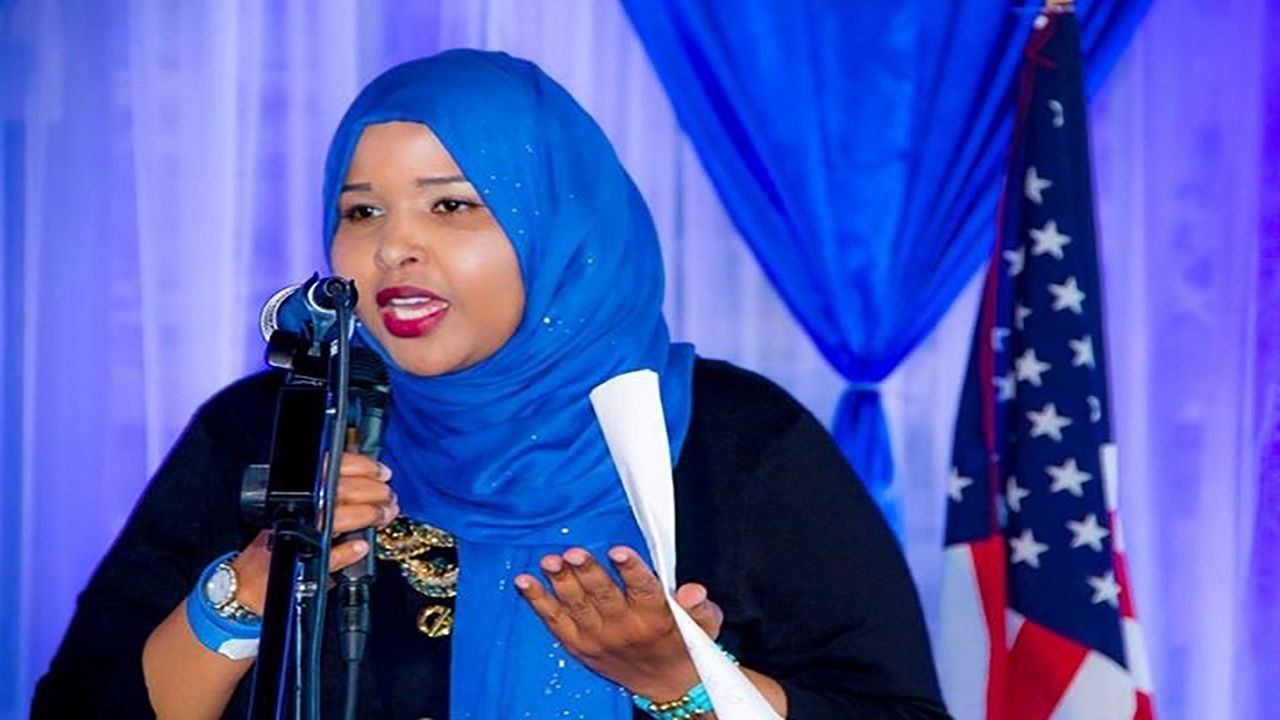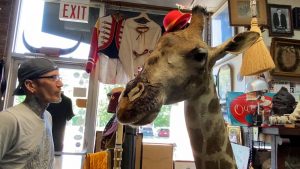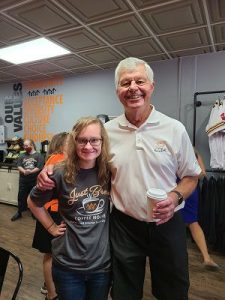AKRON, Ohio — Mikky Subba recently posted a sign in the yard of his family’s Akron home that reads, “Any Functional Adult 2020.”
When his dad Naresh Subba, a Bhutanese immigrant, asked why his son chose that sign, his eldest boy told him he didn’t want to offend neighbors on a street packed with political signs representing both political persuasions.
That non-confrontational outlook in a contentious political season is echoed by community organizers active in Ohio’s immigrant communities.
“We’re doing bipartisan work to a great extent,” said Sudarshan Pyakurel, a Columbus community organizer and social work graduate student. He was a Bhutanese refugee who became a citizen in 2015.
Pyakurel and organizers at several Ohio universities launched grassroots organizations this year to educate, assist and empower immigrants in regard to both the election and COVID-19.
Last spring, Bhutanese organizers launched the BRAVE Project, which stands for the Bhutanese Response Assistance Volunteer Effort. BRAVE worked to bring immigrants, often on the front lines in the service industry, clarity about COVID-19, delivering food and medical supplies to the doors of families hit by the virus.
In July, the same group organized South Asian American Advocacy Forum (SAAAF), which works to provide social, economic and political representation for immigrants from Nepal/Bhutan, India, Bangladesh, Pakistan and Sri Lanka.
Both BRAVE and SAAAF now have active chapters in Akron, Columbus, Cleveland, Dayton and Cincinnati.
Because SAAAF is bipartisan, the group is able to partner with nonprofit organizations like the Bhutanese Community Association of Central Ohio and the League of Women Voters, which assist them in organizing events and navigating legal issues, Pyakurel said.
They aim to help immigrants who are confused about aspects of the electoral process, he said.
For example, older Bhutanese Americans recall how they were stripped of their right to vote in their former country before they were herded into Nepali refugee camps. These voters transfer their fear to the U.S. elections, Pyakurel said.
“Those elderly folks in the community, asking us to help them do voter registration, inspired our every-day work,” he said.
SAAAF’s message to immigrants is very simple, he said.
“We are new Americans, and we have been constitutionally given the right to participate in elections,” he said. “Select your own candidate. How long you may have been in the United States, it does not matter. As long as you are a citizen, you have the right, given by this amazing Constitution of the United States. Exercise your right.”
Subba, who owns Family Groceries, a popular Nepali grocery store in Akron’s international neighborhood of North Hill, says he has given his two sons, Mikky, 28, and Mingsho, 20, similar advice.
“It’s so important that, whatever you think about, you go vote and voice your opinion, make your voices heard, instead of complaining later on,” he said. “And you choose whoever you think is the best candidate.”
Clarifying the voting process
In Reynoldsburg just outside Columbus, Bhuwan Pyakurel, Sudarshan’s cousin, is SAAAF’s chairman and a city councilman.
SAAAF worked with immigrants there to help clear up confusion about voter registration, he said.
“So many of them are moving from all across the country,” he said. “Some of them moved from Colorado to Ohio. Some of them moved from Akron to Cincinnati, Cincinnati to Akron—all kinds of things happening. Many of these are first-time voters. They somehow think that once they go to one place, they register and they are good, which is not correct.”
Immigrants also need help understanding what is on ballots, he said.
“Many people, they know the tickets, like president and vice president, but down (the) ballot, no clue what is there,” he said.
In the past four months, SAAAF has hosted a number of forums via ZOOM, presenting candidates—from local officials to Supreme Court justices—to several immigrant communities, he said.
“So, we educate people about why to vote, and how to vote,” he said. “And what are the important issues that they need to consider when they make these choices.”
Language is also a barrier for immigrants, he said, but candidates don’t do enough to communicate to America’s vast immigrant population.
“I mean, when you provide the citizenship test, a lot of civic questions are being asked, and we have to pass those tests. But that’s not enough to be educated in U.S. politics,” he said. “But in reality, the consideration by these candidates to persuade, to educate, this non-English speaking population is low to none.”
Deciding key issues
Taking a peaceful approach to the election cycle doesn’t mean immigrants aren’t passionate about key issues.
Kawther Musa, a community organizer, is also a state-registered community health worker who connects immigrants living in Greater Columbus with resources, such as housing, food, legal aid and health care.
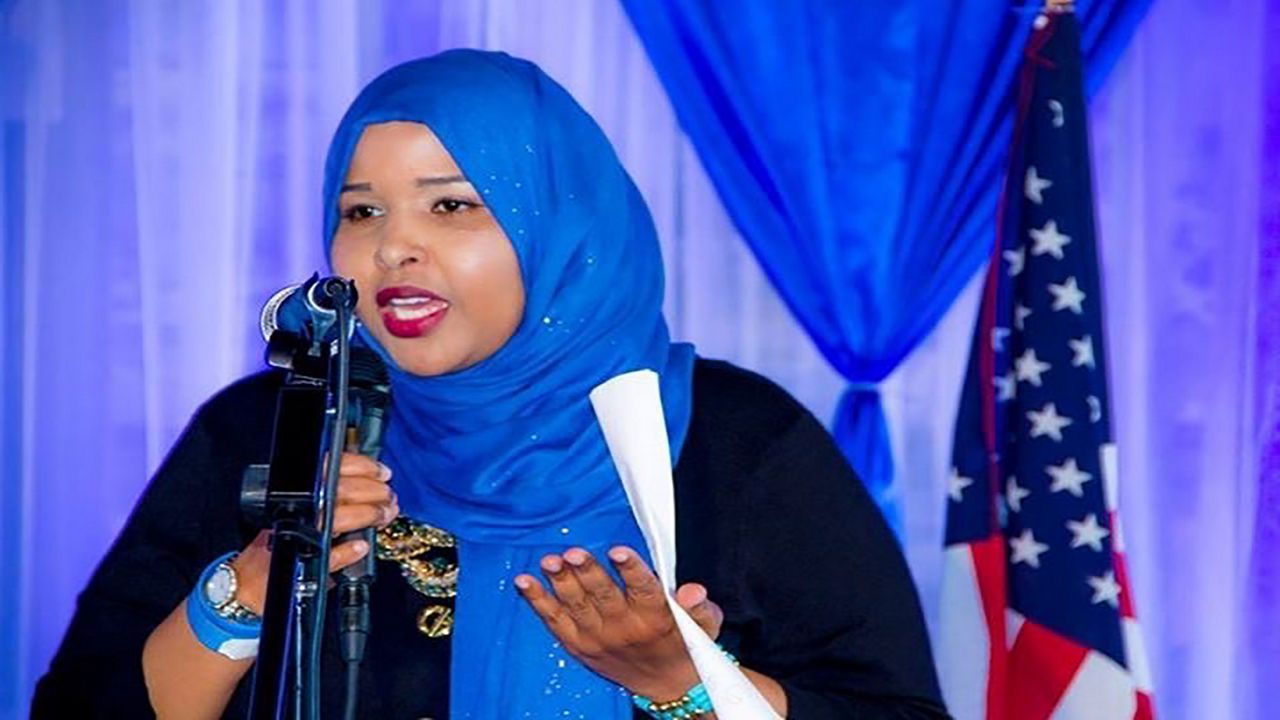
Kawther Musa.
Like SAAAF leaders, she helps educate Somalian immigrants on voting, organizing events that clarify the electoral process and introducing them to issues and local candidates.
The Muslim ban, initiated by President Donald Trump early in his term, made lasting waves in the Somalian community, she said, resulting in immigrants, for the first time, feeling unsafe in their neighborhoods.
“It created a panic attack,” she said. “At the beginning, it was very tough because people feel like, ‘What if I’m driving and the police stopped me? Maybe they’re going to, you know, send me back home.’ And it was very difficult, you know. It was separating families.”
Women were more affected by the ban than men, she said, because they cover their heads with scarves or hijabs, making them more easily recognizable and more fearful.
That issue alone has Somali-Americans fired up to vote, she said.
“Sometimes you vote for policies. Sometimes you vote for something else,” she said. “But this time, they’re voting for themselves because they need to live. They need to work. You know, they need to feel happy again.”
Naturally, immigration issues resonate in other immigrant communities.
“President Donald Trump has dehumanized us,” said Bhuwan Pyakurel. “He has labeled us in a way which is incorrect and inappropriate.”
Subba, who came to the country not as a refugee but as Kent State University student, earned a doctorate in nuclear physics before opening his grocery store. He says the current administration’s immigration policies are also affecting his choices Nov. 3.
“As humans, if there are people in situations where they need help, why not help them?” he said. “It doesn’t mean that I support illegal immigration, though. Anything that is legal. When they need help, why not extend them help?”
Like natural-born Americans, the pandemic is a top issue for many immigrants.
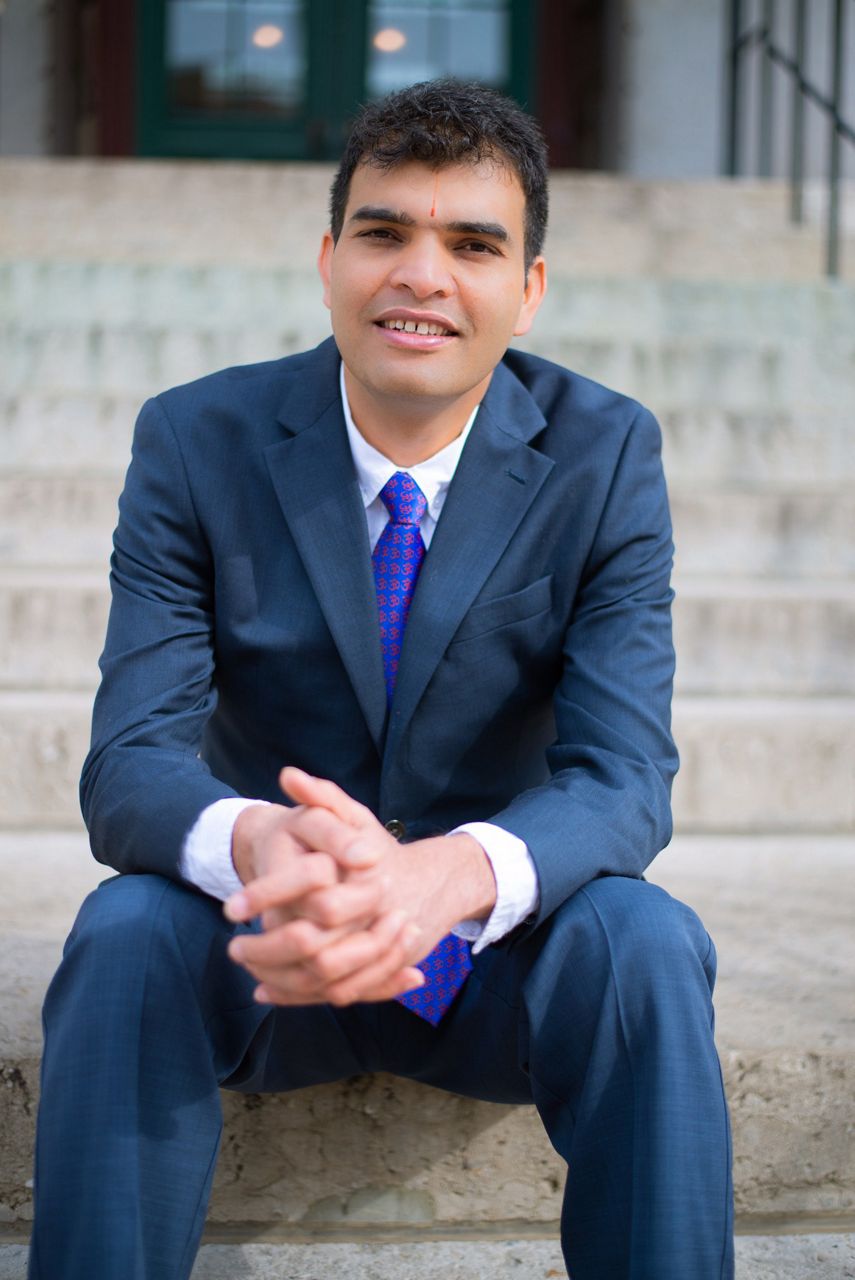
Bhuwan Pyakurel.
One reason Sudarshan Pyakurel’s group launched SAAAF was because the organizers believed immigrants were being ignored when the pandemic spread.
“As long as the current administration is in power, I don’t think it will do much with the COVID,” he said. “Because there is misinformation and they’re downplaying it. We wanted to do something to really address health care issues, but the only option was to register people to vote. Go vote and make a change in administration, so that we can do our job effectively as a health care worker or as a social worker.”
Subba says he’s worried about more jobs going away as the pandemic rages on. He is on his wife, Pavi Subba’s, health care policy. But he worries about other immigrants as well.
“I’m really concerned about the affordable care being thrown away,” Subba said. “It’s in the process. So, that really scares me. I mean, I would think there would be millions of people like me. So many, many more people might be going through the same scary process.”
The pandemic has also affected his business.
“Everything is so uncertain now,” Subba said. “I mean, I own a business, a grocery in Akron and in Cincinnati. The sales are really down. I don’t know how things will work out. I’m hoping that with the election these things will be addressed, you know, in the new administration.”
Misunderstanding is frequent
Amid the election frenzy on social media, many immigrants are bullied for their ideas, Sudarshan Pyakurel said.
“You know, they say, ‘You pack up and go back if you don’t like this president,’” he said. “They are giving us a very hard time. [Trump] is empowering people on the right to look like we are lesser humans and immigration is a bad thing, and immigrants who come here are illegal. We love this country. We are citizens of this country. But they are using these tactics.”
That bullying took place in person as well, while registering voters, Pyakurel said.
While SAAAF was registering new voters in Reynoldsburg, a woman approached the registration table outside a Nepali grocery store and asked if they were permitted to do voter registration, he said.
When the organizers assured her voter registration was legal and the work was bipartisan, she gave them an ultimatum, he said.
“She really got furious at the time,” he said, so his people were quiet and let her rant. “And she left saying, ‘Ask everybody to vote for Trump. If you don’t, I will complain to the governor.”
Natural-born Americans often have the wrong idea about immigrants, Musa said.
“We feel people are all immigrants. We feel this country is owned by anybody who wants to live peacefully,” she said. “We love America. I want to tell them that we are here to work. We are not here to get only the only what is called financial aid.”
Affecting the outcome
If there is strength in numbers, immigrants say they are hopeful theirs will make a difference.
All told, more than 20,000 immigrants are eligible to vote in Ohio, Sudarshan Pyakurel said, and even mobilizing half that number could make a big difference in the state.
To that end, SAAAF set up booths in all its cities in public places where immigrants shop or gather. The group registered more than 500 voters before registration ended for this election, he said.
“We may be small, but we are very significant. This is first time for new voters. They haven’t cast ballots in the past,” he said.
Pyakurel pointed to the handful of votes that decided the presidential election in Florida in 2000 between George W. Bush and Al Gore.
“So, we could swiftly and quietly change the thing,” he said. “And that’s what we want to do. We could be the game changer in Ohio.”
Subba shares this belief.
“All the voting is so important that every single vote counts,” Subba said. “We have seen presidents lose or win by just a number, as little as a few hundred votes. So this is very important. And if you go vote, you may or may not win, but at least you have done a duty. Just don’t give up.”

